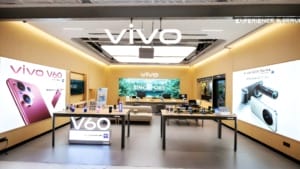Freepik launches new AI image tool built on licensed, safe content
Freepik releases F Lite, a new AI image model trained on licensed images. This tool offers developers an ethical and open-source option.

Freepik, the well-known online design platform, announced the release of its new AI image model, F Lite. This model stands out because it was trained solely on commercially licensed images that are safe for work. Unlike many other AI tools that use freely available — and often copyrighted — content from across the internet, F Lite uses only content the company has full rights to.
⚡ IT’S FINALLY HERE!
— Javi Lopez ⛩️ (@javilopen) April 29, 2025
F-Lite: our first foundational model for image generation. A collaboration between Freepik ♥️ Fal.
• Open Source
• Fully commercially usable
• 10B parameter DiT trained on 80M images
• Trained with 100% licensed data
Link + info 🧵👇 pic.twitter.com/1k4M1qhxO9
The model, which was built in collaboration with AI startup Fal.ai, contains around 10 billion parameters. These parameters are the internal components that help generate images based on written prompts. Freepik used 64 Nvidia H100 graphics cards to develop the model, and the training process took around two months.
With this release, Freepik has joined a small but growing group of companies focusing on transparency and proper licensing in the world of generative AI. This is becoming an important issue as more copyright lawsuits emerge against AI companies like OpenAI and Midjourney.
Why this model matters now
The way AI image models are built has caused major debate. Most current models are trained on huge sets of data, including images pulled from the Internet—many of which are copyrighted. While some AI companies argue that using this data without permission is protected under fair use, many creators and rights holders strongly disagree. As a result, several companies are facing legal challenges.
Freepik is trying to do things differently. The company ensured its F Lite model was trained on an internal dataset of about 80 million appropriately licensed images. This offers a more ethical option for developers and artists who want to explore AI tools without the legal uncertainty.
F Lite is available in two versions: standard and texture. The standard model is designed to follow your prompt, creating reliable and clear images closely. On the other hand, the texture model may be less accurate but often gives more detailed textures and creative outcomes. This allows users to choose the option that best suits their needs.
Here’s an example of what the standard model can do. Using the prompt “A person standing in front of a sunset, in majestic surroundings,” the model generated a visually stunning and accurate image that closely matched the request.
Built for developers, not to compete with top models
Freepik is not claiming that F Lite will outperform leading image generators like Midjourney’s V7 or Flux from Black Forest Labs. Instead, the company says its main aim is to build a strong base model for developers. Freepik hopes to support future improvements and custom uses by making F Lite openly available.
That said, the model is still quite demanding. To use it, you’ll need access to a graphics card with at least 24GB of VRAM—a high-end requirement that could limit casual use.
Freepik is not alone in this move towards more responsible AI. Other companies building image-generating tools with licensed data include Adobe, Getty Images, Bria, Moonvalley, and Shutterstock. As legal battles over AI and copyright continue, many believe this space will grow rapidly — especially for tools prioritising ethical sourcing and content safety.
















